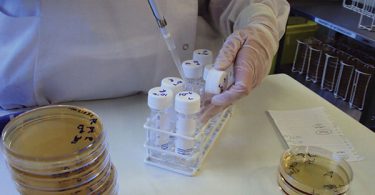The history of LM potencies with regard to their unusual treatment in our literature and use in homeopathy is of a paramount importance. The fact that Hahnemann introduced them very late in his life and suppression of the publication of the sixth edition of Organon of Medicine has resulted in LM potencies acquiring a unique position in the modern homeopathy. The reason is that at least two generations of the great homeopathic teachers including Hughes, Hering, Dudgeon and particularly Kent did not know about LM potencies since they had not read the sixth edition of Organon of Medicine. Therefore these highly influential homeopaths did not use these dilutions in their practice and therefore had nothing to report about them based on the clinical experience.
- They are gentler than the decimal or centesimal potencies.
- They produce fewer aggravations than the other potencies.
- It is useful to give a patient a remedy every day and it allows the homeopaths to practise without using placebo.
- The patient is able to ‘plus’ the remedy every day if given in the liquid form. This allows the medicine to have its potency slightly increased in a very subtle way every day.
- Most of the LM potencies contain actual molecules of the original substance thus allowing the users to defend them against the most hostile of mantras: ‘Homeopathy? There is nothing in it!’
- Homeopathy highly values subjectivity. In fact it is only our ability to hear and record the subjective experiences of the illnesses and lives of our patients that enables us to prescribe our remedies. This is a profound and beautiful truth about homeopathy and the reason I wrote a book’ The Homeopathic Conversation’ about taking the case in homeopathy. The better a homeopath is able to grasp what his/her patient is experiencing subjectively, the better is his chance to understand the case and prescribing successfully. While a sign in the medicine is something that can be objectively perceived by a doctor. A symptom is a subjective experience of the patient and no reader of this journal needs to be reminded of the significance of symptoms in homeopathy!
- We regard the subjective experiences of our ancestors with respect. The writings of James Tyler Kent and his colleagues are very much subjective in relation to what these doctors experienced in the clinic. Otherwise we would have inherited the studies and trials from these homeopaths. Instead we have a wealth of the useful clinical anecdotes that were subjective and valuable experiences of those homeopathic pioneers. The reason the Kentians have irrevocably influenced our understanding of the remedies is that they added their subjective experiences of using the remedies in the clinic to the materia medica. This of course was influenced by the process of sharing these subjective experiences with their colleagues and coming to a consensus about any given symptom and remedy. Nevertheless this important group added to our materia medica the ‘clinical symptoms’ that were purely the result of a subjective clinical experience and appeared nowhere in the provings. Purists across the Atlantic, notably Richard Hughes, protested vehemently but the fact is that the knowledge of materia medica of every homeopath has been influenced by the works of Kent or one of his many acolytes over the years. Far less homeopaths have read the scholarly and much more objective writings on materia medica of Professor Hughes.





